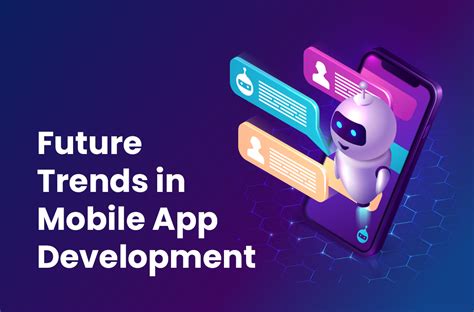Mobile apps have become an integral part of our daily lives, transforming the way we communicate, work, and entertain ourselves. With the rapid evolution of technology, mobile apps are becoming increasingly sophisticated, incorporating innovative features and functionalities that enhance user experiences. In this article, we will explore 7 revolutionary tech trends in mobile apps that are changing the game.
The mobile app industry has witnessed exponential growth over the past decade, with millions of apps available across various platforms. However, with the increasing competition, app developers are under constant pressure to innovate and stay ahead of the curve. To achieve this, they are leveraging cutting-edge technologies to create apps that are more intuitive, engaging, and user-friendly.
One of the primary drivers of innovation in mobile apps is the emergence of new technologies. From artificial intelligence (AI) and machine learning (ML) to augmented reality (AR) and the Internet of Things (IoT), these technologies are revolutionizing the way apps are designed, developed, and consumed.
What's Driving the Change?
Several factors are contributing to the rapid evolution of mobile apps. The proliferation of smartphones, advancements in network technologies, and the increasing demand for mobile-first experiences are some of the key drivers of change. Additionally, the availability of new technologies and frameworks has made it easier for developers to create complex and feature-rich apps.
Revolutionary Tech Trends in Mobile Apps
1. Artificial Intelligence (AI) and Machine Learning (ML)
AI and ML are transforming the mobile app landscape by enabling apps to learn from user behavior, adapt to preferences, and provide personalized experiences. AI-powered chatbots, for instance, are being used in apps to offer customer support, answer queries, and provide recommendations.
Image:

2. Augmented Reality (AR)
AR technology is revolutionizing the way we interact with mobile apps. By overlaying digital information onto the physical world, AR apps are providing immersive experiences that blur the lines between reality and fantasy. From gaming and entertainment to education and retail, AR is transforming various industries.
Image:

3. Internet of Things (IoT)
IoT technology is connecting mobile apps to the physical world, enabling apps to interact with devices, sensors, and other objects. From smart home apps to wearables and fitness trackers, IoT is transforming the way we live, work, and interact with our surroundings.
Image:

4. Blockchain Technology
Blockchain technology is providing a secure and transparent way to conduct transactions, store data, and protect user identities. From secure payment apps to decentralized social networks, blockchain is transforming the way we think about security and trust in mobile apps.
Image:

5. 5G Networks
The rollout of 5G networks is providing faster data speeds, lower latency, and greater connectivity. This is enabling mobile apps to provide seamless, high-quality experiences that are uninterrupted by buffering, lag, or slow loading times.
Image:

6. Personalization
Personalization is becoming increasingly important in mobile apps, as users expect apps to learn from their behavior and provide tailored experiences. From recommendation engines to customized interfaces, personalization is transforming the way apps interact with users.
Image:

7. Voice-Activated Interfaces
Voice-activated interfaces are revolutionizing the way we interact with mobile apps. From voice assistants to voice-controlled interfaces, voice-activated interfaces are providing a more natural, intuitive way to interact with apps.
Image:

Gallery of Mobile App Trends






FAQs
What is the most significant trend in mobile apps?
+The most significant trend in mobile apps is the use of artificial intelligence (AI) and machine learning (ML) to provide personalized experiences.
How are 5G networks impacting mobile apps?
+5G networks are providing faster data speeds, lower latency, and greater connectivity, enabling mobile apps to provide seamless, high-quality experiences.
What is the future of mobile app development?
+The future of mobile app development lies in the use of emerging technologies such as AR, VR, and blockchain to create immersive, secure, and transparent experiences.
In conclusion, the mobile app landscape is undergoing a significant transformation, driven by emerging technologies and changing user expectations. By incorporating AI, AR, IoT, blockchain, 5G networks, personalization, and voice-activated interfaces, mobile apps can provide innovative, engaging, and user-friendly experiences that meet the evolving needs of users. As the mobile app industry continues to evolve, it's essential for developers to stay ahead of the curve and leverage these trends to create apps that are truly revolutionary.
